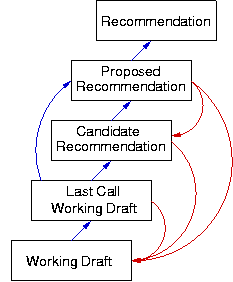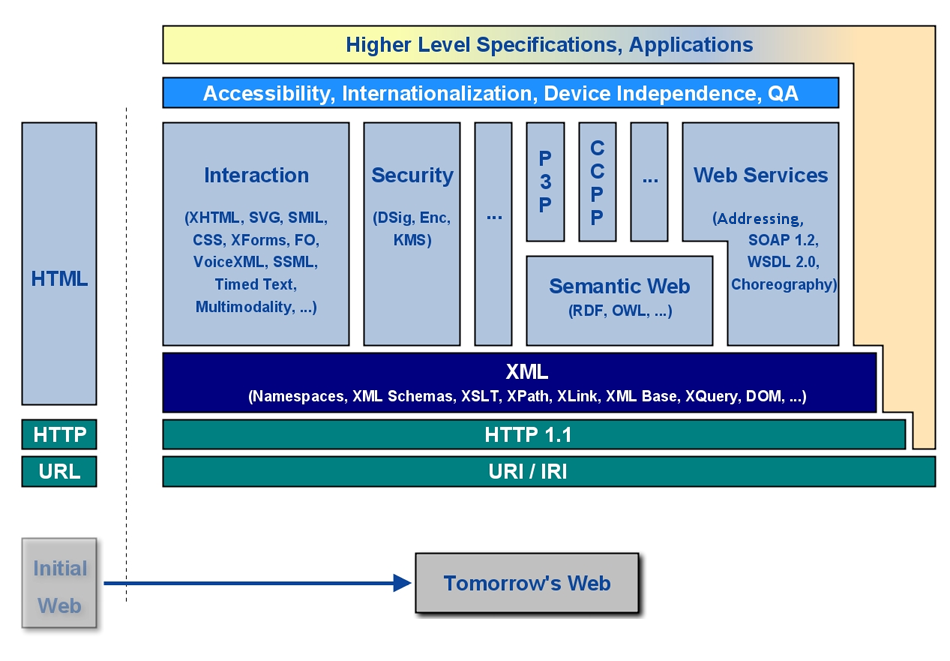W3C Exec Summary
The World Wide Web Consortium (W3C) is an International Consortium
where Member and External organizations, a full-time technical staff, and the
public work together to lead the World Wide Web to its full
potential by developing Web standards such as protocols and
guidelines that ensure long-term growth for the Web.
- Goals: Interoperability, Universality,
Functionalities
- Neutral/nonforprofit, consensus based, open
participation, open results
- ~400 members, ~70 staff,
- ~50 Working Groups ~20 Coordination Groups and Interest Groups
- Hosting: MIT (America), ERCIM (Europe) and Keio
University (Japan) + 16 Offices
- Advisory Board, Technical Architecture Goup
- Liaisons with 40+ other standards
bodies, Accountable to the global Public
What Open Standards means ?
A lot of debates nowadays for a common definition of Open
Standards(IGF, EC, etc)
- Transparent process
- Open participation
- Technical Consensus
- Running code
- Free and Persistent Specification
- W3C Patent Policy for Web Technologies
W3C Standards Track

W3C Results

W3C Patent Policy
Director's Decision May 2003: The availability of an
interoperable, unencumbered Web infrastructure provides an expanding
foundation for innovative applications, profitable commerce, and the free
flow of information and ideas on a commercial and non-commercial basis.
Method:
- W3C Patent licensing definition
- Disclosure rules
- Exception Handling: Patent Advisory Group (PAG)
Requirements for the PP License
Requirements
for a license, (not license text itself):
- available to all
- all Essential Claims 'owned or controlled'
- field of use limitation
- reciprocity
- no fees
- defensive suspension
- no other conditions
Open Web Standards and eGovernment
- Key Enablers: Policy
makers need to understand the Web principles and basic architecture
- eGov experts should get involved to drive the specifications
they need inside W3C.
- W3C can drive the specifications that eGovernment needs.
- High impact:
eGovernment should consider W3C technologies as a
toolbox including solutions for privacy, accessibility,
quality, security and semantic treatment of data.
- eGov must support: i18n, multimodal, mobile ready, and
accessible to all.
- Governments should help define Open IST Standards and take a
close look at W3C Patent Policy.


